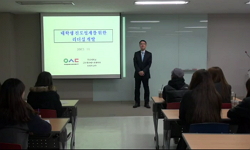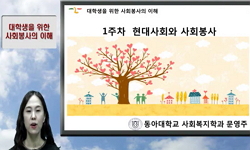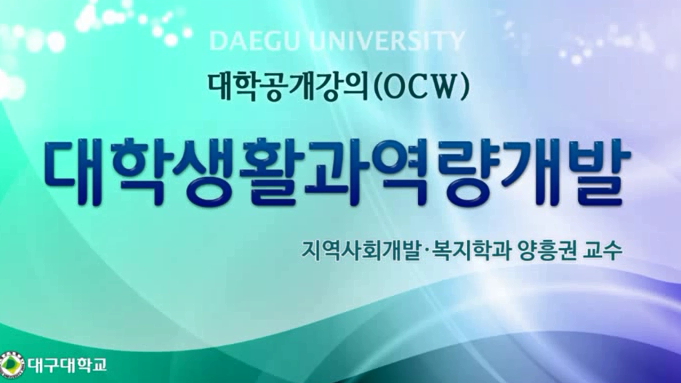Objectives: This study examined the association of the sleep quality and patterns with the dietary behavior, including snack and beverage consumption, taste preferences, as well as lifestyle of university students. Methods: The subjects were 406 unive...
http://chineseinput.net/에서 pinyin(병음)방식으로 중국어를 변환할 수 있습니다.
변환된 중국어를 복사하여 사용하시면 됩니다.
- 中文 을 입력하시려면 zhongwen을 입력하시고 space를누르시면됩니다.
- 北京 을 입력하시려면 beijing을 입력하시고 space를 누르시면 됩니다.

청주지역 일부 대학생의 수면의 질에 따른 식행동 및 생활습관 = Sleep Quality and Its Association with the Dietary Behavior and Lifestyle of University Students in Cheongju
한글로보기https://www.riss.kr/link?id=A106414883
- 저자
- 발행기관
- 학술지명
- 권호사항
-
발행연도
2019
-
작성언어
Korean
- 주제어
-
등재정보
KCI등재
-
자료형태
학술저널
- 발행기관 URL
-
수록면
395-407(13쪽)
-
KCI 피인용횟수
2
- DOI식별코드
- 제공처
- 소장기관
-
0
상세조회 -
0
다운로드
부가정보
다국어 초록 (Multilingual Abstract)
Methods: The subjects were 406 university students in Cheongju, Korea, and the data were collected using a self-administered questionnaire. They were divided into two groups according to the Pittsburgh Sleep Quality Index (PSQI): good-quality sleepers (PSQI score ≤ 5) and poor-quality sleepers (PSQI score > 5). The data were analyzed using a χ 2-test, independent t-test, and analysis of covariance using the SPSS 25.0 program.
Results: Fifty-two percent of university students were categorized as poor-quality sleepers by the PSQI. Students classified as poor-quality sleepers had delayed bedtimes, and a shorter duration in bed and total sleep hours than the good-quality sleepers did.
Poor-quality sleepers were more prevalent among those who were female, having irregular mealtimes, or frequent late night meals. They also consumed fast food frequently, such as fried chicken and hamburgers, and noodles when adjusted for gender. In addition, drinks with caffeine over milk were dominant among poor-quality sleepers. Furthermore, the preferences for spicy and salty tastes and longer smartphone usage were more prevalent in those with poor-sleep quality.
Conclusions: These results showed that more than 50% of university students reported disturbed sleep and poor quality sleep was associated with less desirable snack consumption and taste preference, more smartphone usage, and others. Therefore, nutrition education program along with lifestyle changes promoting sufficient sleep are encouraged to provide for university students, particularly those who have poor sleep quality.
Objectives: This study examined the association of the sleep quality and patterns with the dietary behavior, including snack and beverage consumption, taste preferences, as well as lifestyle of university students.
Methods: The subjects were 406 university students in Cheongju, Korea, and the data were collected using a self-administered questionnaire. They were divided into two groups according to the Pittsburgh Sleep Quality Index (PSQI): good-quality sleepers (PSQI score ≤ 5) and poor-quality sleepers (PSQI score > 5). The data were analyzed using a χ 2-test, independent t-test, and analysis of covariance using the SPSS 25.0 program.
Results: Fifty-two percent of university students were categorized as poor-quality sleepers by the PSQI. Students classified as poor-quality sleepers had delayed bedtimes, and a shorter duration in bed and total sleep hours than the good-quality sleepers did.
Poor-quality sleepers were more prevalent among those who were female, having irregular mealtimes, or frequent late night meals. They also consumed fast food frequently, such as fried chicken and hamburgers, and noodles when adjusted for gender. In addition, drinks with caffeine over milk were dominant among poor-quality sleepers. Furthermore, the preferences for spicy and salty tastes and longer smartphone usage were more prevalent in those with poor-sleep quality.
Conclusions: These results showed that more than 50% of university students reported disturbed sleep and poor quality sleep was associated with less desirable snack consumption and taste preference, more smartphone usage, and others. Therefore, nutrition education program along with lifestyle changes promoting sufficient sleep are encouraged to provide for university students, particularly those who have poor sleep quality.
참고문헌 (Reference)
1 김명희, "충남 일부 지역 대학생의 야식 섭취 실태" 동아시아식생활학회 21 (21): 563-576, 2011
2 배문경, "청주지역 일부 대학생의 편의점 편의식 섭취 빈도에 따른 식습관 및 식품첨가물 관련 인식" 대한지역사회영양학회 21 (21): 140-151, 2016
3 김태양, "청주지역 대학생의 에너지 음료에 대한 인식과 섭취 실태 및 섭취 관련 요인" 대한지역사회영양학회 23 (23): 60-72, 2018
4 강윤희, "지역사회 노인의 사회적 지지, 고독감, 수면의 질, 지각된 건강상태에 관한 연구" 한국보건간호학회 26 (26): 303-313, 2012
5 성민정, "일부 지역 대학생의 생활 스트레스와 수면, 신체계측, 영양소섭취 상태와의 상관관계" 한국식품영양과학회 36 (36): 840-848, 2007
6 이순희, "원주지역 대학생의 건강관련요인, 영양지식 및 식습관 조사" 대한지역사회영양학회 20 (20): 96-108, 2015
7 조성배, "수면장애와 알코올" 대한수면의학회 24 (24): 5-11, 2017
8 서준식, "수면 중 자주 깨는 사람들의 생활 습관과 건강 상태" 대한가정의학회 27 (27): 967-974, 2006
9 이혜련, "성인의 수면의 질과 관련요인에 관한 연구" 한국보건간호학회 27 (27): 76-88, 2013
10 강민지, "부산지역 대학생의 짠맛 선호도에 따른 소금 섭취 식행동 차이와 상관성 분석" 한국식품조리과학회 31 (31): 477-484, 2015
1 김명희, "충남 일부 지역 대학생의 야식 섭취 실태" 동아시아식생활학회 21 (21): 563-576, 2011
2 배문경, "청주지역 일부 대학생의 편의점 편의식 섭취 빈도에 따른 식습관 및 식품첨가물 관련 인식" 대한지역사회영양학회 21 (21): 140-151, 2016
3 김태양, "청주지역 대학생의 에너지 음료에 대한 인식과 섭취 실태 및 섭취 관련 요인" 대한지역사회영양학회 23 (23): 60-72, 2018
4 강윤희, "지역사회 노인의 사회적 지지, 고독감, 수면의 질, 지각된 건강상태에 관한 연구" 한국보건간호학회 26 (26): 303-313, 2012
5 성민정, "일부 지역 대학생의 생활 스트레스와 수면, 신체계측, 영양소섭취 상태와의 상관관계" 한국식품영양과학회 36 (36): 840-848, 2007
6 이순희, "원주지역 대학생의 건강관련요인, 영양지식 및 식습관 조사" 대한지역사회영양학회 20 (20): 96-108, 2015
7 조성배, "수면장애와 알코올" 대한수면의학회 24 (24): 5-11, 2017
8 서준식, "수면 중 자주 깨는 사람들의 생활 습관과 건강 상태" 대한가정의학회 27 (27): 967-974, 2006
9 이혜련, "성인의 수면의 질과 관련요인에 관한 연구" 한국보건간호학회 27 (27): 76-88, 2013
10 강민지, "부산지역 대학생의 짠맛 선호도에 따른 소금 섭취 식행동 차이와 상관성 분석" 한국식품조리과학회 31 (31): 477-484, 2015
11 김명관, "대학생의 흡연행태가 수면의 질에 미치는 영향" 한국산학기술학회 19 (19): 346-352, 2018
12 이복임, "대학생의 카페인 음료 섭취와 수면의 질" 한국학교보건학회 27 (27): 31-38, 2014
13 김세희, "대학생의 스마트폰 중독과 스트레스가 수면의 질에 미치는 영향" 한국산학기술학회 20 (20): 112-120, 2019
14 이복임, "대학생의 스마트폰 이용 시간과 신체적, 정신적 건강과의 관련성" 한국학교보건학회 26 (26): 45-53, 2013
15 정미숙, "대학생의 스마트폰 과다사용이 지각된 인지기능, 피로 및 주간 졸림증에 미치는 영향" 한국학교보건학회 29 (29): 245-255, 2016
16 김경희, "대학생의 수면시간에 따른 식습관 및 체조성에 관한 연구" 한국식생활문화학회 28 (28): 539-546, 2013
17 박민정, "대학생의 성별에 따른 수면의 질과 영향요인" 한국디지털정책학회 16 (16): 187-195, 2018
18 김승대, "대학생들의 생활습관과 수면의 질과의 관련성" 한국산학기술학회 14 (14): 2795-2801, 2013
19 노효련, "대학생들의 생활 스트레스, 수면 유형, 수면의 질 간의 관계 분석: 기숙사 거주 학생들을 중심으로" 한국자료분석학회 19 (19): 1011-1024, 2017
20 김효복, "광주지역 일부 여자 중․고등학교 3학년 학생의 수면의 질과 간식섭취량의 상관관계" 한국식품영양과학회 42 (42): 212-222, 2013
21 홍지혜, "고등학생의 스트레스 강도와 식행동과의 상관성" 한국식품영양과학회 43 (43): 459-470, 2014
22 이경아, "경북지역 대학생의 소금섭취 관련 식행동 조사" 한국식품영양과학회 43 (43): 1122-1131, 2014
23 김미현, "강원 영동지역 일부 남자 대학생에서 기숙사 거주와 자취에 따른 식습관 및 가공식품 이용관련 식행동 조사" 대한지역사회영양학회 18 (18): 372-385, 2013
24 Sohn SI, "The reliability and validity of the Korean version of the Pittsburgh Sleep Quality Index" 16 (16): 803-812, 2012
25 황혜림, "The relationship between hypertension and sleep duration: an analysis of the fifth Korea National Health and Nutrition Examination Survey (KNHANES V-3)" 대한고혈압학회 21 (21): 1-7, 2015
26 Park SY, "The correlations between a sleep quality and a healthrelated quality of life according to a adult smart phone use time" 2 (2): 181-188, 2018
27 Buysse DJ, "The Pittsburgh Sleep Quality Index: A new instrument for psychiatric practice and research" 28 (28): 193-213, 1989
28 Mollayeva T, "The Pittsburgh Sleep Quality Index as a screening tool for sleep dysfunction in clinical and non-clinical samples: a systematic review and meta-analysis" 25 : 52-73, 2016
29 Roehrs T, "Sleep, sleepiness, sleep disorders and alcohol use and abuse" 5 (5): 287-297, 2001
30 Lv W, "Sleep, food cravings and taste" 125 (125): 210-216, 2018
31 Crum RM, "Sleep disturbance and risk for alcohol-related problems" 161 (161): 1197-1203, 2004
32 Patterson RE, "Short sleep duration is associated with higher energy intake and expenditure among African-American and Non-Hispanic white adults" 144 (144): 461-466, 2014
33 Baron KG, "Role of sleep timing in caloric intake and BMI" 19 (19): 1374-1381, 2011
34 Korean Society for the Study of Obesity, "Guideline for treatment of obesity"
35 Kang SG, "Effects of minor stressful events on sleep in college students" 9 (9): 48-55, 2002
36 Kim S, "Eating patterns and nutritional characteristics associated with sleep duration" 14 (14): 889-895, 2011
37 Kim SJ, "Characteristics of sleep pattern among Korean college students" 13 (13): 15-21, 2006
38 Smith SL, "Changes in taste preference and steps taken after sleep curtailment" 163 (163): 228-233, 2016
39 Spiegel K, "Brief communication: Sleep curtailment in healthy young men is associated with decreased leptin levels, elevated ghrelin levels, and increased hunger and appetite" 141 (141): 846-850, 2004
40 Szczygiel EJ, "Associations between chemosensory function, sweet taste preference, and the previous night's sleep in non-obese males" 75 : 105-112, 2019
41 장신이, "Association between Sleep Duration and Obesity in Young Korean Adults" 대한비만학회 25 (25): 207-214, 2016
42 김초롱, "Association between Sleep Duration and Impaired Fasting Glucose in Korean Adults: Results from the Korean National Health and Nutrition Examination Survey 2011–2012" 대한가정의학회 37 (37): 51-56, 2016
43 Van den Bulck J, "Adolescent use of mobile phones for calling and for sending text messages after lights out: results from a prospective cohort study with a one-year follow-up" 30 (30): 1220-1223, 2007
동일학술지(권/호) 다른 논문
-
일본 소비자의 혁신성과 신제품 소스에 대한 소비 행동 분석
- 대한지역사회영양학회
- 김수진
- 2019
- KCI등재
-
경기도 학교급식 음식물쓰레기 발생 실태 및 잔반 감량화 방안
- 대한지역사회영양학회
- 최지연
- 2019
- KCI등재
-
- 대한지역사회영양학회
- 박경애
- 2019
- KCI등재
-
가정, 학교, 대중매체의 식생활교육 경험이 식품 소비자정보 리터러시에 미치는 영향
- 대한지역사회영양학회
- 김지은
- 2019
- KCI등재
분석정보
인용정보 인용지수 설명보기
학술지 이력
| 연월일 | 이력구분 | 이력상세 | 등재구분 |
|---|---|---|---|
| 2026 | 평가예정 | 재인증평가 신청대상 (재인증) | |
| 2020-01-01 | 평가 | 등재학술지 유지 (재인증) |  |
| 2017-01-01 | 평가 | 등재학술지 유지 (계속평가) |  |
| 2013-01-01 | 평가 | 등재학술지 유지 (등재유지) |  |
| 2010-01-01 | 평가 | 등재학술지 유지 (등재유지) |  |
| 2008-01-01 | 평가 | 등재학술지 유지 (등재유지) |  |
| 2006-01-01 | 평가 | 등재학술지 유지 (등재유지) |  |
| 2004-01-01 | 평가 | 등재학술지 유지 (등재유지) |  |
| 2001-07-01 | 평가 | 등재학술지 선정 (등재후보2차) |  |
| 1999-01-01 | 평가 | 등재후보학술지 선정 (신규평가) |  |
학술지 인용정보
| 기준연도 | WOS-KCI 통합IF(2년) | KCIF(2년) | KCIF(3년) |
|---|---|---|---|
| 2016 | 1.15 | 1.15 | 1.13 |
| KCIF(4년) | KCIF(5년) | 중심성지수(3년) | 즉시성지수 |
| 1.28 | 1.21 | 1.764 | 0.42 |




 ScienceON
ScienceON DBpia
DBpia







